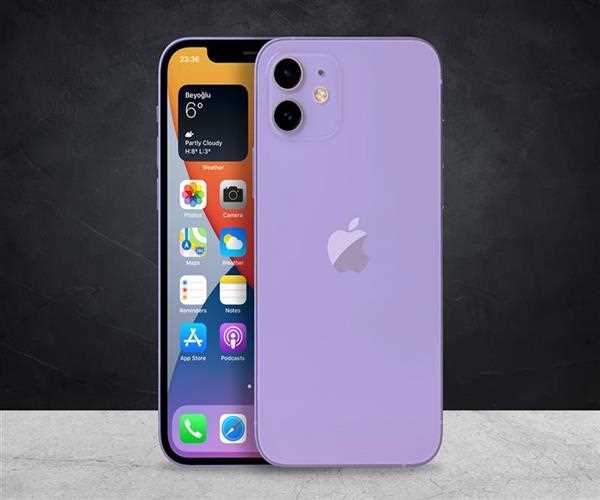
20-Apr-2023 , Updated on 4/26/2023 9:55:42 PM
10 reasons why you don't buy an iphone- 2023 view
Apple's iPhone is one of the most popular and iconic smartphones on the market today. With sleek designs, cutting-edge technology, and a loyal fan base, it is no surprise that the iPhone continues to dominate the market. However, despite its popularity, there are some reasons why you may want to think twice before purchasing an iPhone. In this view, we will explore 10 reasons why you may want to reconsider buying an Apple iPhone.
Expensive Price Tag
One of the most obvious reasons why you may not want to buy an iPhone is the
expensive price tag. Apple's products are notoriously expensive, and the iPhone is no exception. While there are lower-priced options available, such as the iPhone SE, the latest models can cost over $1,000. If you are on a tight budget, you may want to consider other options that offer similar features at a lower price point.
Limited Customization Options
One of the benefits of Android smartphones is the ability to customize your device to fit your personal preferences. With iPhones, however, customization options are limited. You can change your wallpaper and rearrange your apps, but you cannot change the overall layout or functionality of the device.
Limited Storage Options
Another downside of iPhones is the limited storage options. While the latest models offer up to 512GB of storage, this can come with a hefty price tag. If you are someone who takes a lot of photos, videos, or downloads apps, you may quickly run out of
storage space on your iPhone.
Limited Battery Life
While the battery life of iPhones has improved in recent years, it still falls short compared to some of its competitors. Depending on your usage, you may need to charge your iPhone multiple times throughout the day, which can be inconvenient for those who are always on the go.
Lack of Expandable Memory
Unlike Android smartphones, iPhones do not have the option to expand memory with a
microSD card. This means that you are stuck with the amount of storage that comes with your device, and if you run out of space, you will need to delete some files or purchase a new device with more storage.
Closed Ecosystem
Apple's ecosystem is famously closed, meaning that it can be difficult to integrate with other devices and services that are not made by Apple. If you are someone who uses a lot of third-party apps and services, you may find it challenging to integrate them with your iPhone.
Proprietary Accessories
Another downside of the closed ecosystem is the requirement for proprietary accessories. Apple's Lightning cable is not compatible with standard micro-USB or USB-C cables, which can be frustrating for those who have multiple devices that use different types of cables.
Limited Repair Options
Apple is notoriously strict about repairs and servicing for their products. If your iPhone needs repair, you will likely need to take it to an Apple store or authorized repair center, which can be inconvenient and expensive.
Limited Compatibility with Non-Apple Devices
As mentioned earlier, Apple's ecosystem is famously closed, which means that iPhones may not be compatible with non-Apple devices. If you have a lot of devices that are not made by Apple, you may find it challenging to integrate them with your iPhone.
Lack of Innovation
Finally, some critics argue that Apple's iPhone lacks innovation. While the company continues to release new models with incremental updates and improvements, there has been little in the way of groundbreaking new features or technology in recent years.
While the iPhone may be a popular and iconic smartphone, it is not without its downsides. From the expensive price tag to the closed ecosystem and limited repair options, there are several reasons why you may want to reconsider purchasing an iPhone. That being said, everyone's needs and preferences are different, and an iPhone may still be the best choice for some individuals. It is important to weigh the pros and cons and make a decision that is right for you.
Alternatives to the iPhone include Android smartphones such as Samsung, Google Pixel, and OnePlus, which offer similar features and customization options at a lower price point. Other alternatives include refurbished or older models of iPhones, which can often be found at a lower cost.
If you do decide to purchase an iPhone, there are some things you can do to mitigate some of the downsides. For example, you can invest in a battery pack or charging case to extend your battery life, or purchase a third-party Lightning cable that is compatible with other devices. You can also take steps to optimize your storage by regularly deleting old files and using cloud storage options.
Ultimately, the decision to purchase an iPhone or any other smartphone should be based on your individual needs and preferences. While there are several downsides to iPhones, they still offer a range of benefits such as a user-friendly interface, high-quality camera, and access to the Apple ecosystem. It is important to consider all factors before making a decision and to choose a device that will best meet your needs and fit within your budget.

SEO and Content Writer
I am Drishan vig. I used to write blogs, articles, and stories in a way that entices the audience. I assure you that consistency, style, and tone must be met while writing the content. Working with the clients like bfc, varthana, ITC hotels, indusind, mumpa, mollydolly etc. has made me realized that writing content is not enough but doing seo is the first thing for it.
Comments
Join Our Newsletter
Subscribe to our newsletter to receive emails about new views posts, releases and updates.
Copyright 2010 - 2026 MindStick Software Pvt. Ltd. All Rights Reserved Privacy Policy | Terms & Conditions | Cookie Policy